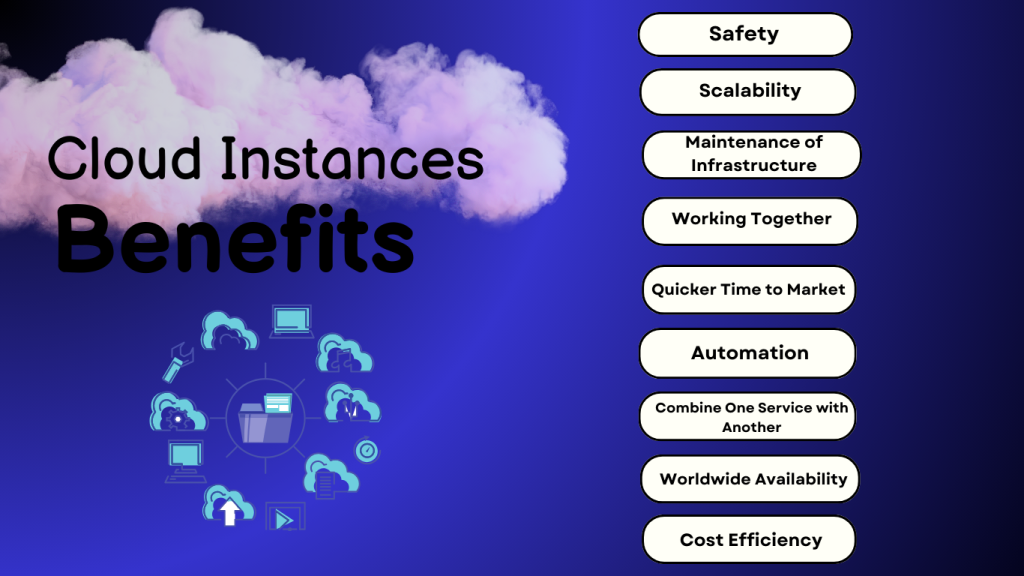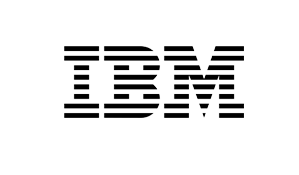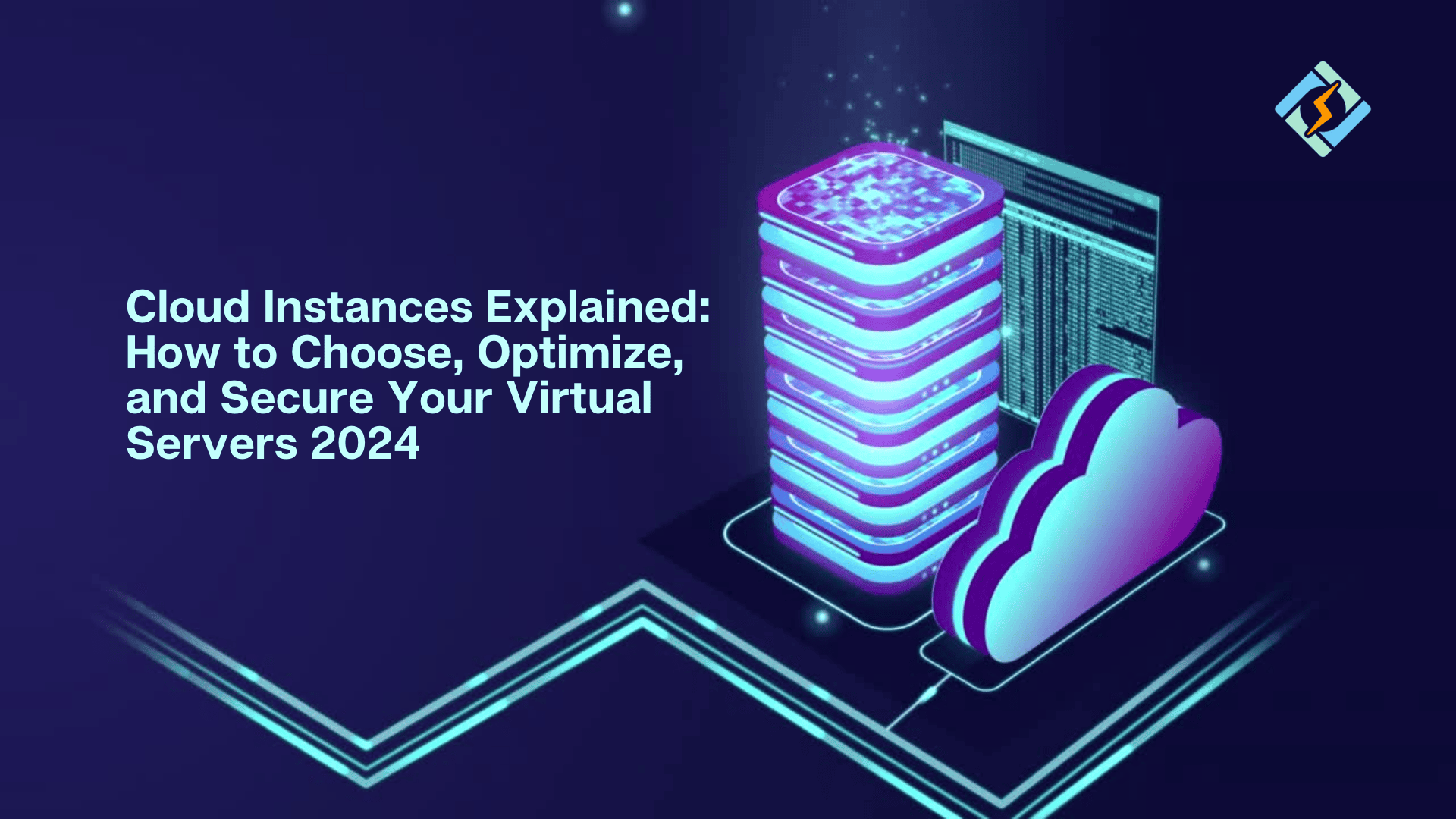Welcome to the world of cloud instances—where virtual servers meet infinite possibilities. Imagine a future in which your apps can grow easily, your website can manage traffic volume, and your IT infrastructure costs are always optimized. Sounds impossible right?
But what exactly are instances in cloud computing and why are they so important for businesses, experienced developers? Well, The term is commonly used in the cloud-computing world instances spinning up in response to demand, instances shutting down, and so forth. Simply put, Cloud instances are nothing more than the program running on a virtual server.
Cloud instances, or virtual servers, are at the center of this change because they enable businesses to scale resources more effectively, lower costs, and increase flexibility.
This article is a complete guide for you, we’ll be exploring the benefits of Cloud instances, types, features, Top cloud instance providers in 2024, and much more!
How Cloud Instances Work?
Another name for the cloud instances is a virtual machine or server, which is developed and supplied by cloud computing platforms like Amazon Web Services. A cloud platform provides services & resources for computing. So Understanding instances of cloud is essential for streamlining operations and optimizing your cloud architecture, regardless of the size of your company.
By simulating computer hardware, an instance operates. The hardware of the host computer, on which your instance will operate, is selected when you create it. Depending on how much RAM, CPU, and storage your application requires, you can choose a cloud instance type.
Get exclusive access to all things tech-savvy, and be the first to receive
the latest updates directly in your inbox.
- Utilizes cloud software or APIs for instance generation and management.
- Instance configurations include RAM, CPU, graphics processing, etc.
- Instances can have additional security and network configurations.
- Configurations can be imported from pre-defined policies or created from scratch.
- Users can configure applications or servers on any operating system.
- Charges only for resources used by the cloud provider.
- Users are free to create unlimited instances of creation and destruction.
Types of Cloud Instances
Instances are categorized based on their physical characteristics, such as CPU power, disk storage capacity, memory size, etc.
Here are the main types of instances in cloud computing that you must know of:
1) General Purpose Instance
Applications that demand an equal distribution of memory, processing power, and networking resources are best suited for a general-purpose instance type. For web servers, for instance, companies employ general-purpose instances.
2) Memory Intensive Instances
Extra RAM is provided by this memory-optimized cloud instance type, designed to run memory-intensive apps. It’s suitable for processing large datasets, in-memory analytics, and caching techniques.
3) Compute-optimized instance
For applications requiring a lot of processing power, compute-optimized instances are ideal. For example, developers run workloads for media transcoding, science modeling, and gaming servers on compute-optimized instances.
4) Graphics-intensive Instance
Storage-optimized instances are utilized for high-speed applications and big storage capabilities, as the name implies. These instances offer low latency and high IOPS as an alternative to local storage. Therefore, big data processing, data warehousing, and databases can all be used with storage-optimized instances.

5) High CPU Instances
These instances are designed to handle compute-intensive applications, like scalable multi-player gaming, machine learning methods, distributed analytics, batch processing, graphics rendering, and so on, with high computing power.
6) Spot Instances
Reduced pricing is offered for unsold cloud capacity bids. It is very affordable. However, the provider has the option to end it if necessary. This option is ideal for adaptable and robust applications.
Real-world Use Cases of Companies using Different Types of Cloud Instances
| Company | Instance Type | Use Case |
| Netflix | EC2 (Amazon Web Services) | Streaming video content to millions of users globally. |
| Airbnb | AWS | Scaling platform during peak seasons and optimizing costs. |
| Mercedes-Benz | Microsoft Azure | Running simulations and data analytics for autonomous driving. |
| Zoom | Oracle Cloud | Video conferencing services with high availability and low latency. |
| Snapchat | Azure VM | Real-time multimedia messaging |
| EC2 Spot Instances | Cost-effective batch processing |
9 Key Benefits of Cloud Instances
Let’s look at how instances in cloud computing benefit virtual servers of businesses by acting as virtual machines:

- Safety
- Scalability
- Maintenance of Infrastructure
- Working Together
- Quicker Time to Market
- Automation
- Combine One Service with Another
- Worldwide Availability
- Save Cost
1. Safety
A highly secure platform with data encryption, restricted access, and limited access is provided by a cloud instance. To stop data loss, it also offers disaster recovery and backup capabilities.
2. Scalability
Cloud instances can be easily adjusted up or down to meet the demands of the user in response to changing workloads.
3. Maintenance of Infrastructure
Users can concentrate on their primary tasks instead of having to pay for and maintain infrastructure by utilizing cloud instances.
4. Working Together
Working remotely with cloud instances enables you to collaborate with your team even when you’re not physically next to each other.
5. Quicker Time to Market
Developers can expedite work using rapid deployments because cloud instances can be created and retired in a matter of seconds.
6. Automation
Reduce operational overhead by automating backups, scaling, instance management, and other tasks with tools and APIs.
For example, a SaaS company might use B2B data APIs to automatically sync firmographic or employee data into its CRM in real time, triggering instance scaling or security protocols based on predefined rules. Anchor: B2B data APIs
7. Combine One Service with Another
Create a unified cloud infrastructure by seamlessly integrating cloud instances with other cloud services like databases, storage, and networking.
8. Worldwide Availability
Install instances across several geographical locations to provide low latency and high availability for consumers everywhere.
9. Save Cost
With choices like on-demand, reserved, and spot instances to save expenses, you only pay for the resources you are using.
What is The Cloud Instance Life Cycle?
An instance undergoes various stages in its life cycle, starting from its initial supply, including provisioning, staging, running, stopping, terminating, and resuming.
- Provisioning: Setting up and assigning computer power to instances that are currently in use.
- Running: Employing instances to host workloads.
- Shutting Down: Starting the process of shutting down a system when it isn’t functioning properly or passing status checks.
- Terminated: When an instance is no longer required, it is deleted.
- Termination protection: Guards against unintentional instance termination.
- Upon termination of the instance, charges cease.
- Upon termination, data on instance storage volumes is erased.
Best Cloud Instance Providers
The big three—Google Cloud, Microsoft Azure, and Amazon Web Services (AWS)—are considered the established leaders. However, there are a host of other smaller or niche players that offer cloud services as well, including IBM, Alibaba, Oracle, Red Hat, DigitalOcean, and Rackspace.
Today we’re discussing the following:
- Amazon Web Services (AWS): Best for Public Cloud
- Microsoft Azure: Best for Developer Solutions
- Oracle Cloud
- Alibaba Cloud: Best for Elastic Computing
- IBM Cloud: Best for Integrated Cloud Experience
1) Amazon Web Services (AWS): Best for Public Cloud

A leading cloud service provider Amazon Web Services provides more than 200 fully functional services to businesses of all shapes and sizes. It has millions of active clients worldwide and unrivaled knowledge and skill in the cloud space.
To accommodate different workloads, AWS provides a wide range of instance types, including general-purpose, compute-, memory-, and more optimized options.
Pricing
- AWS free Tier for selected services
- Pay-as-you-go model
Features you get
- Large-scale scalability
- A vast ecosystem of services
- Worldwide reach with several data centers
- Strong security
Con’s
- Frequent downtime due to heavy traffic
- Issues in automatic storage scaling
- It’s a broad and complex ecosystem that can be overwhelming for beginners
2) Microsoft Azure: Best for Developer Solutions

Another great cloud instance provider in the market is Microsoft Azure. Both basic web apps and sophisticated cloud applications can be developed and managed with Microsoft Azure’s wide range of products and services.
It provides businesses with intelligent solutions that support many technical frameworks and operate across several clouds. It is more affordable and offers the most complete compliance coverage compared to AWS, despite the latter’s wide selection of products and services.
Features you get
- Integrating with Microsoft services and products seamlessly
- Enterprise-grade security
- Robust support for hybrid cloud configurations
- AI/ML services
Con’s
- The pricing model is complicated
- Requires better technical support
- Fewer global data centers
3) Oracle Cloud

Oracle Cloud offers comprehensive cloud services, including private, public, multi-cloud, and hybrid cloud options. It also supports cloud-native application development using open-source frameworks and tools. Unlike some other cloud providers such as AWS, Microsoft Azure, and VMware, Oracle Cloud Solutions maintains a consistent pricing structure instead of offering varying pricing plans based on location.
Features you get
- High-speed connectivity between several clouds
- A cloud platform of enterprise quality for creating complex apps
- Strict access controls, network isolation, and encryption are examples of best security measures.
- Security with little need for personal involvement
- Cost analysis and budgeting tools to assist users in effectively managing their cloud spending.
Con’s
- Add more functions
- UI is frequently criticized for being more difficult to use and less intuitive
- Fewer third-party integrations and a smaller ecosystem
4) Alibaba Cloud: Best for Elastic Computing

Alibaba Cloud, the top Chinese cloud provider, offers a diverse range of instance types, focusing primarily on Asia-Pacific markets. Offers a range of services designed to assist companies with data processing and secure cloud computing. Its intelligence-driven cloud solutions have the potential to greatly accelerate business expansion and digital breakthroughs.
The organization provides various strategic mechanisms for data backups and has shown exceptional growth in the last few years. When comparing pricing plans, Alibaba Cloud is more affordable than VMware.
Features you get
- Intelligently powered, user-friendly cloud services
- An extensive product portfolio and a multitude of cross-industry solutions
- Elastic infrastructure and data centers are increasingly dependable and stable
- strong security and compliance features
Con’s
- Restricted reach beyond Asia
- Cultural and language barriers
- Ecology that is less developed
5) IBM Cloud: Best for Integrated Cloud Experience

The last cloud instances provider left to discuss is IBM leading business executives rely on IBM Cloud because it promotes infrastructure and technology development that ensures efficient operations at a reasonable cost. Strong emphasis on IoT, blockchain, and AI services for business purposes. It excels in industry-specific solutions and hybrid clouds.
Its AIOps solutions improve overall customer experiences by delivering excellent results and helping to achieve desired business goals. The platform drives corporate change by creating customized action plans through intelligent automation.
Features you get
- Maintains a consistent service level while mitigating risks to third and fourth parties
- Integrated IaaS and PaaS solutions for automated infrastructure deployment
- High customization
- Strong security
Con’s
- A smaller user base and a less robust third-party tool ecosystem
- Complex & less transparent pricing models
- Fewer data centers, higher latency
Choosing the Right Cloud Instance Provider: Important Things to Look Out For
There are many things to consider when choosing instances in cloud computing such as the following:
- Cost: Take into account both the direct and indirect expenses of using the service.
- Digital Capabilities and Processes: Assess a CSP’s ability to satisfy present and future IT requirements.
- Trust: Evaluate the provider’s standing in the industry, technological expertise, cloud experience, financial stability, and support for multi-cloud and hybrid models.
- Open Ecosystem: Determine whether the supplier provides choices for developing, migrating, and implementing apps in many settings.
- Security: Assess the security procedures used by the supplier, taking into account physical security measures, identity management, security infrastructure, policies, and data backup and retention.
The Drawbacks of Using a Cloud Instance Provider
These are the challenges to keep in mind that business owners may face, and do not worry we have solutions for you as well
1. Cost: Cloud providers offer strong security measures, but users must ensure their data’s security, which can be challenging due to the shared responsibility model.
Solution: For real-time spending optimization, use budget alerts and cloud cost management solutions.
2. Complex Contracts: Contracts and SLAs must be negotiated with every cloud service provider you use. Using multiple vendors may lead to complex SLA connections with varying specifications and assured service requirements.
Solution: Centralize contract management and standardize SLA terms across multiple cloud providers to streamline the negotiation process and ensure consistent service levels.
3. Vendor Lock-In: Certain cloud instances provider has poor product and service integrations with competitor offerings. Moving data and workloads to a different technology stack can be challenging without facing expensive fees, incompatibilities, or even legal restrictions if one becomes overly reliant on a single supplier.
Solution: Utilize cloud-agnostic or multi-cloud application design tools to preserve flexibility and facilitate future migrations.
4. Lack of Specialized Skills: Working in cloud computing requires certain abilities, and it might be not easy to identify or develop employees who have them.
Solution: To ensure that your staff is updated on cloud technology and best practices, invest in continuous training and certifications.
Future Trends in Cloud Instances
Hybrid and Multi-Cloud Strategies
To achieve flexibility, cost optimization, and resilience, businesses will increasingly use hybrid and multi-cloud approaches, combining on-premises, public, and private cloud instances.
Automation and AI-Driven Optimization
Cloud management is set to incorporate AI and automation technologies, enabling efficient resource allocation, cost reduction, and enhanced performance.
Quantum Computing Instances
Though still in its beginnings, quantum computing has the potential to offer unmatched computational power for specific applications such as intricate simulations and cryptography.
Edge Computing Integration
Deploying cloud instances closer to customers at the edge will increase lower latency and support real-time applications like the Internet of Things and autonomous vehicles.
Conclusion
There’s no denying that instances in cloud computing have massively upscaled how businesses operate. Offering many benefits like unparalleled flexibility, scalability, and efficiency.
Looking at the future of Cloud instances, it will be essential for businesses looking to stay competitive to stay ahead of developments like edge computing, AI-driven optimization, and hybrid cloud strategies. Businesses can seize new chances and maintain their success in the rapidly changing digital landscape by embracing these innovations and adjusting to the changing landscape.
FAQ’S
What is an instance in cloud computing?
A cloud instance is a virtual server that stores and runs data and applications, and it is made available by a cloud service provider. It provides demand-driven scalability in computing resources and may be tailored to meet particular workload needs.
What are Cloud Run instances?
Serverless containers are known as Cloud Run instances scale automatically in response to traffic. You don’t need to manage infrastructure—you only pay for the resources needed to handle requests.
What are the benefits of using cloud instances?
Benefits from cloud instances include global reach, cost-effectiveness, scalability, and flexible resource management. These facilitate prompt adaptation of resources to demand, lower capital costs, and enhance operational efficacy for businesses.
What are instances in VMs?
Within a physical server, instances in virtual machines, or VMs, are virtualized environments that function as independent computers. The ability to execute separate operating systems and apps on each instance enables isolated and scalable computer resources.



